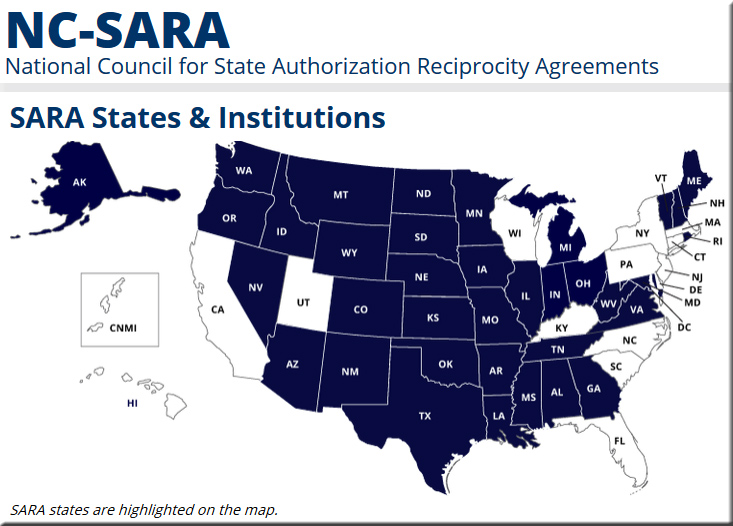Here’s how Maine students will have access to courses at 500 colleges — from bangordailynews.com by Christopher Cousins
Excerpt:
AUGUSTA, Maine — Maine college students will soon have seamless access to hundreds of higher education courses in 35 states thanks to a new program to which the state has just been accepted.
The New England Board of Higher Education announced Monday that Maine has been accepted to the New England State Authorization Reciprocity Agreement (N-SARA). Here are the details:
What is SARA?
SARA is a 36-state coalition through which colleges and universities, as well as individual students, can access courses at institutions in other participating states. Reciprocally, Maine institutions also will be allowed to share their online offerings in other states in the coalition. Maine passed a law earlier this year to allow the state’s application to the coalition.
There are about 500 higher education institutions participating in the program nationally.
Also see:
General Information
Higher Education needs a new way for states to oversee the delivery of postsecondary distance education.
The current process is too varied among the states to assure consistent consumer protection, too cumbersome and expensive for institutions that seek to provide education across state borders, and too fragmented to support our country’s architecture for quality assurance in higher education — the quality assurance “triad” of accrediting agencies, the federal government, and the states.
A new, voluntary process of state oversight of distance education has been created to redress these problems. The State Authorization Reciprocity Agreement is a voluntary agreement among its member states and U.S. territories that establishes comparable national standards for interstate offering of postsecondary distance-education courses and programs. It is intended to make it easier for students to take online courses offered by postsecondary institutions based in another state.
…
The State Authorization Reciprocity Agreement (SARA) establishes a state-level reciprocity process that will support the nation in its efforts to increase the educational attainment of its people by making state authorization:
- more efficient, effective, and uniform in regard to necessary and reasonable standards of practice that could span states;
- more effective in dealing with quality and integrity issues that have arisen in some online/ distance education offerings; and
- less costly for states and institutions and, thereby, the students they serve.










That’s fantastic news! I hope more states implement such a system. One can only wonder about the quality of the courses, but I think it shouldn’t be subpar, being authored by universities and all.